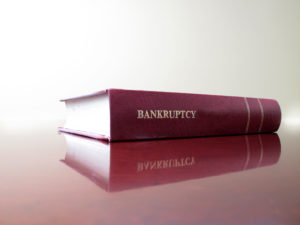 Section 727(d) of the Bankruptcy Code provides for a debtor’s discharge to be revoked in certain circumstances, including under subsection which states:
Section 727(d) of the Bankruptcy Code provides for a debtor’s discharge to be revoked in certain circumstances, including under subsection which states:
(d) On request of the trustee, a creditor, or the United States trustee, and after notice and a hearing, the court shall revoke a discharge granted under subsection (a) of this section if –
* * * *
(2) the debtor acquired property that is property of the estate, or became entitled to acquire property that would be property of the estate, and knowingly and fraudulently failed to report the acquisition of or entitlement to such property, or to deliver or surrender such property to the trustee[.]
Although the language of Section 727(d)(2) does not specify that it is restricted to post petition acquisitions of property or property rights, a number of courts and commentators have interpreted this section in exact that manner. See, In Re Weisberg, 202 B.R. 332 (Bankr. D.N.H. 1996); In re Argiannis, 183 B.R. 307 (Bankr. N.D.Fla. 1995); In re Brink, 179 B.R. 726 (Bankr. N.D.Fla. 1995); In re Poole, 177 B.R. 235 (Bankr. E.D.Pa. 1995); and In re Savage, 167 B.R. 22 (Bankr. S.D.N.Y. 1994); see also Ginsberg and Martin on Bankruptcy 11.04[B](4th ed.1996).
In re Stewart, 534 B.R. 740 (Bankr. E.D.Mich. 2021), appears to follow this line of authority. Here, the debtor appropriately scheduled her residence as an asset of the estate. She subsequently received a discharge. Following her discharge, the debtor transferred by quit claim deed her residence for $1,000 without notice to her trustee, nor court approval. The trustee objected to her discharge under Section 727(d)(2).
In describing Section 727(d)(2), the court stated that “[t[his provision imposes a duty upon the debtor to report to the trustee any acquisitions of property after the filing of the petition.” Id. at 745 (quoting 6 Collier on Bankruptcy ¶727.17[4] (16th ed. 2021) A mere post-petition transfer of estate property, alone, cannot be the basis for revoking a debtor’s discharge under Section 727(d)(2). “Rather, that section requires that, first, there must be property of the estate that was acquired post-petition; and second, the debtor must have failed to report, deliver, or surrender that property to the trustee, with fraudulent intent.” Id. at 747.
Yet, a significant caveat to the opinion exists, as the court also found that the debtor’s failure to report the $1,000 in sale proceeds could be a basis for a Section 727(d)(2) revocation. Specifically, the court noted that:
That post-petition acquisition of property of the estate might be the basis for a §727(d)(2) claim, but only if Stewart fraudulently failed to report the $1,000.00, or failed to deliver it or surrender it. But the complaint cannot fairly be read as having alleged any of these things. The Plaintiff’s complaint does not contain any allegation regarding the failure of Stewart to report, deliver, or surrender to the Trustee the $1,000.00 in proceeds from the sale of the real estate Property. Nor does the complaint contain any allegation of fraudulent intent by Stewart in failing to report, deliver, or surrender the $1,000.00.
Id. at 747.
A contrary conclusion was reached in In re Barr, 207 B.R. 168 (Bankr. N.D.Ill. 1997). The court here stated that debtors have an absolute duty to disclose all of their existing property interests when they file for bankruptcy and that duty is not restricted to post-petition receipts of assets or rights in assets. The court stated that to limit Section 727(d)(2), as suggested above, would indicate that Congress intended that the post-petition receipt of property that is hidden from the bankruptcy trustee justifies a Section 727(d)(2) discharge revocation, but not the wholesale deception of the trustee by concealing assets received before a bankruptcy was filed. Support for this decision is found in In re Yonikus, 974 F.2d 901, 902 (7th Cir. 1992); United States v. Cluck, 87 F.3d 138, 140 (5th Cir. 1996); and In re Walters, 176 B.R. 835, 876 (Bankr. N.D.Ind. 1994).
Matthew T. Gensburg
[email protected]

